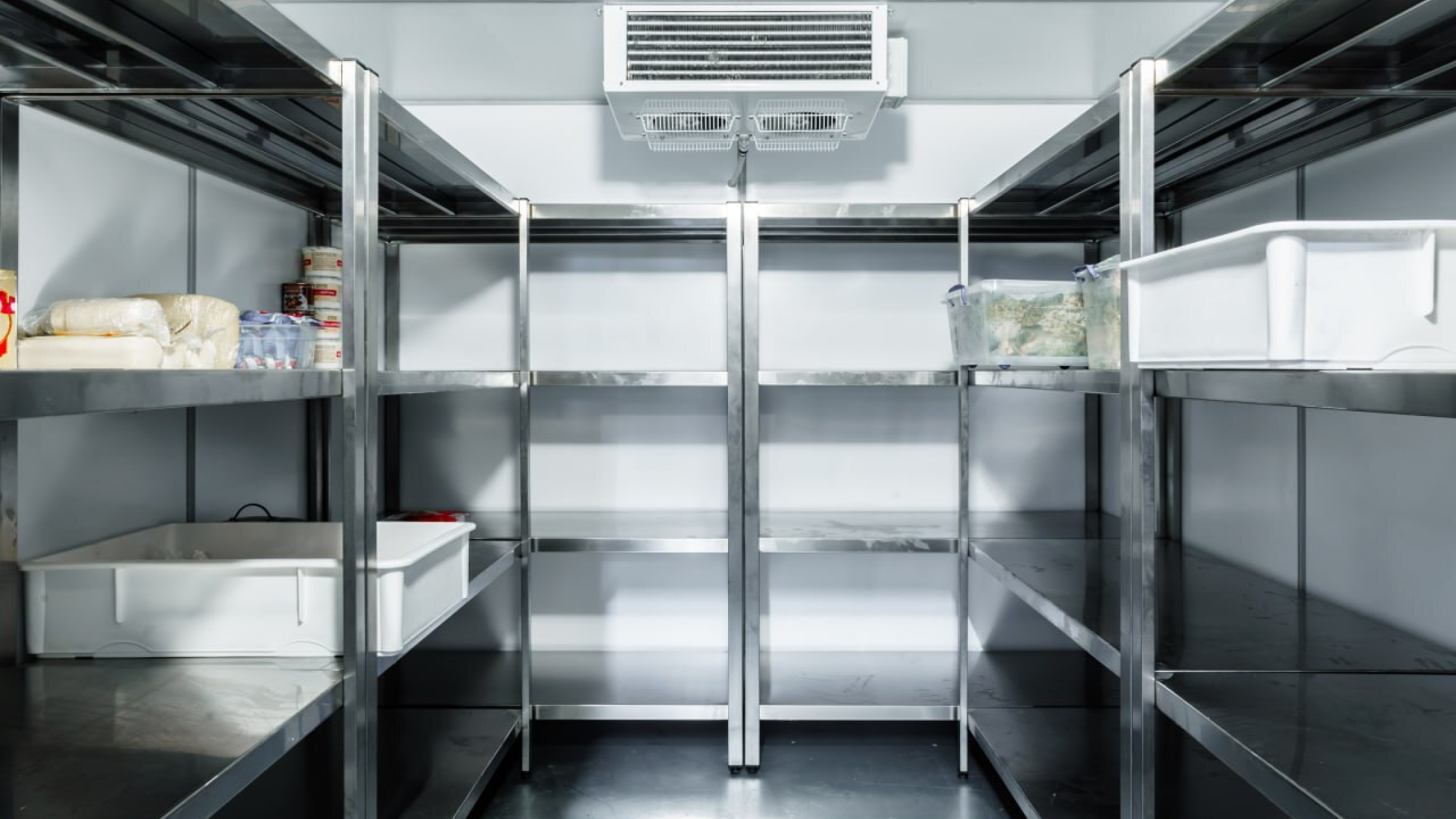
Here at Hospitality Connect we are able to custom coolroom for everybody needs. A custom coolroom is built to suit specific needs and requirements, offering flexibility in terms of size, temperature range, shelving configuration, and other features. Here are the key aspects and considerations when it comes to designing and using a custom coolroom:
- Design and Components of a Custom Coolroom
- Insulation: High-quality insulation is crucial to maintaining a consistent temperature within the coolroom. Insulation materials like polyurethane panels or expanded polystyrene (EPS) are commonly used.
- Flooring: The flooring should be durable and resistant to moisture. Options include non-slip surfaces, epoxy coatings, and specialized flooring materials suitable for cold environments.
- Cooling System: The cooling system can vary based on the temperature requirements and size of the coolroom. Common options include refrigeration units, evaporators, and condensing units.
- Doors: The coolroom door plays a vital role in maintaining the temperature. It should be well-insulated, have a tight seal, and open and close efficiently.
- Shelving and Racking: Customize the interior layout with shelving and racking that suits the type of items being stored. Adjustable shelving can accommodate items of varying sizes.
- Temperature Control: Install temperature monitoring and control systems to ensure that the coolroom maintains the desired temperature range.
- Lighting: Use energy-efficient lighting that produces minimal heat to prevent temperature fluctuations.
- Ventilation: Adequate ventilation is necessary to prevent humidity buildup and ensure proper air circulation within the coolroom.
- Considerations for Custom Coolrooms
- Size and Capacity: Determine the required storage capacity based on the volume of items that need to be stored. Custom coolrooms can be designed to fit available space.
- Temperature Range: Specify the desired temperature range for the coolroom, as different items require different storage temperatures.
- Type of Items: Consider the types of items you will be storing, as this will influence factors like shelving design and airflow requirements.
- Access Frequency: The frequency of door openings and access can impact the coolroom's ability to maintain a consistent temperature.
- Energy Efficiency: Choose energy-efficient components and systems to minimize operational costs.
- Compliance: Ensure that the design and installation of the custom coolroom comply with relevant health, safety, and food storage regulations.
- Installation and Maintenance: Professional installation is important to ensure proper functionality and energy efficiency. Regular maintenance is essential for longevity and optimal performance.
Custom coolrooms are valuable assets for businesses that require precise temperature control for their products. Whether you're in the food industry, pharmaceuticals, or any other sector that deals with temperature-sensitive items, working with experienced professionals who specialize in cold storage solutions is essential for designing, installing, and maintaining a custom coolroom that meets your specific needs.

